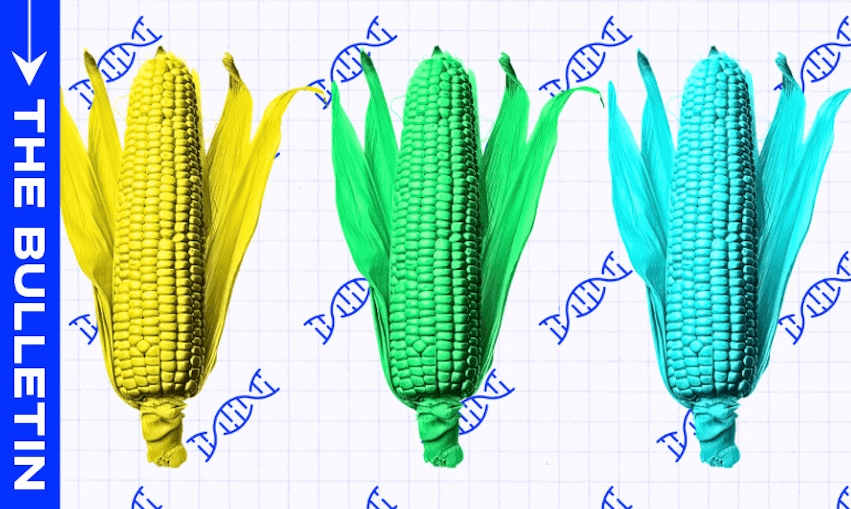MPs agree the laws on genetic engineering should be relaxed – but a majority say the current bill goes too far, writes Catherine McGregor in today’s extract from The Bulletin.
To receive The Bulletin in full each weekday, sign up here.
Coalition at an impasse over gene tech bill
The government’s long-promised overhaul of New Zealand’s genetic modification laws has hit a major obstacle, with NZ First refusing to support the Gene Technology Bill in its current form. The health select committee released its long-delayed report on Friday, revealing the party had joined Labour, the Greens and Te Pāti Māori in withholding support for the legislation. National and Act remain in favour, but without NZ First’s votes the bill cannot pass.
The committee backed a series of amendments to improve oversight, including greater transparency and independence for the proposed Gene Technology Regulator, but those changes failed to resolve NZ First’s concerns. As Fox Meyer explains in Newsroom, “NZ First will be holding the line on preventing the environmental release of genetically modified organisms – a line it claims was clear in its original coalition agreement with National when it sought to liberalise genetic modification laws.” Science minister Shane Reti insists “constructive discussions” are continuing and that the government remains committed to passing the bill before next year’s election.
Critics warn of ‘far too liberal’ approach
NZ First’s objections echo the concerns of many submitters who say the proposed reforms wouldn’t just dismantle the country’s cautious approach to genetic engineering, but reverse it. Opponents told the select committee that the legislation risked, in the words of The Post’s Tom Pullar-Strecker, “the pendulum swinging too far in the opposite direction, to give New Zealand one of the most liberal regimes in the world”. Labour’s Reuben Davidson warned it could make the country a test bed for trials banned elsewhere, while Fonterra called for tighter controls to prevent genetically modified organisms from contaminating dairy herds. Environmental and organic groups fear the loss of export premiums tied to New Zealand’s clean, green image, and Māori organisations have objected that the bill fails to uphold te Tiriti or guarantee Māori decision-making rights.
Supporters say reform is overdue
Supporters of reform, including National, Act, industry bodies and most scientists, argue that New Zealand’s genetic modification rules are outdated, stifling innovation and forcing research overseas. They point out that genetically modified foods are already widely imported and sold in New Zealand supermarkets, subject to rigorous Food Standards Australia New Zealand safety checks. As Shanti Mathias notes in a Spinoff article on the arguments for and against, organisations such as AgResearch and the Livestock Improvement Corporation (LIC) say gene technology could cut methane emissions by enabling low-emission pastures and feeds. LIC also argues that cutting-edge CRISPR techniques are highly precise and much lower risk than previous versions of gene editing.
In Farmers’ Weekly, Life Sciences Network’s William Rolleston argues the proposed rules are already stricter than those in Australia, despite claims to the contrary, and warns that excessive caution could leave New Zealand “a decade behind” its competitors. National, whose pre-election pledge was to end the “effective ban” on genetic modification, says the bill balances safety with opportunity, enabling medical breakthroughs like CAR T-cell therapies and new agricultural tools to combat climate change and disease.
Old fears and new frontiers
Gene technology – whether genetic editing, which alters existing DNA, or genetic modification, which introduces new genes – remains one of New Zealand’s most divisive scientific issues. As Gabi Lardies explains in The Spinoff, the 1996 Hazardous Substances and New Organisms Act placed such tight controls on research that field trials virtually ceased, earning the country a reputation for being effectively GM-free. That stance was shaped by the early-2000s “Corngate” scandal, when revelations about accidentally released GM corn ignited a political firestorm and entrenched public mistrust.
Two decades later, scientists argue the world has moved on: most nations allow tightly regulated gene editing in agriculture and medicine, and the global scientific consensus is that modern gene technology is safe. Yet for many New Zealanders who remember Nicky Hager’s Seeds of Distrust and the protests that followed, the fear of irreversible harm to the environment – and to the nation’s image – runs deep.
Subscribe to +Subscribe

